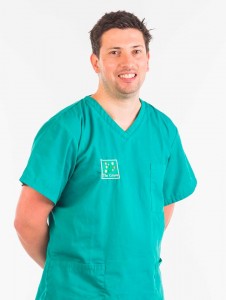A bright, white smile does wonders for confidence levels. Tooth whitening is an increasingly popular means of improving the colour of the teeth without removing any of the tooth surface. Tooth whitening can be an extremely effective way of gently lightening and brightening your smile, provided it is carried out safely by a suitably qualified person.
Only dentists and their teams (if suitably qualified and supervised) can legally carry out tooth whitening, it is illegal for beauticians or any other cosmetic therapist to carry out tooth whitening. Find out which is the best option for you:
Over the counter/online teeth whitening kits: Although these may be cheaper, they are not as effective as professional treatment and the results will not last as long. Many are not assessed for their safety and may contain harmful acidic chemicals which are damaging to tooth enamel. Kits bought online often include self moulding whitening trays, these are often ill fitting, causing the whitening gel to leak irritating and possibly burning gums and soft tissues. These kits legally cannot contain more than 0.1% hydrogen peroxide active ingredient, which is not enough to be truly effective. Carrying out this treatment at home without the advice of a dentist may mean unsuitability – it is worth bearing in mind that whitening will not work on false teeth, crowns, bridges and fillings. Also you may not be suitable for treatment if you have gum disease as this will need to be addressed prior to any cosmetic work.
Professional teeth whitening: Professional whitening is completely safe under dentist supervision. Whitening trays will be custom made, well fitting and very comfortable. Our whitening gels contain a desensitising agent to minimise discomfort during and after treatment. Sensitivity is a common side effect of whitening, but completely treatable – our team of dental care professionals can offer help and advice on techniques and products to help. Your dentist will work with you to make sure you get the best possible result. Maintenance is easy – top up kits are available for £45.00 after an initial course of treatment at the practice. As dental care professionals we are able to provide highly effective 16% carbamide peroxide whitening gels.
Whitening toothpastes: Some whitening toothpastes contain a blue colourant which can make teeth seem instantly whiter, but will n0t lighten or bleach teeth. Many whitening toothpastes contain abrasive particles which claim to remove staining, but can also cause irreversible damage to tooth enamel, particularly when used over a long period of time. Whitening toothpaste works on enamel (the hard tooth surface), where a professional tooth whitening system penetrates the enamel to alter the shade of the structure below. This is why whitening toothpastes will not work if staining is below the surface of the tooth.
For more information on whitening or to book an appointment please call us on 01443 812559 (Ystrad Mynach) 01443 451851 (Nelson)





